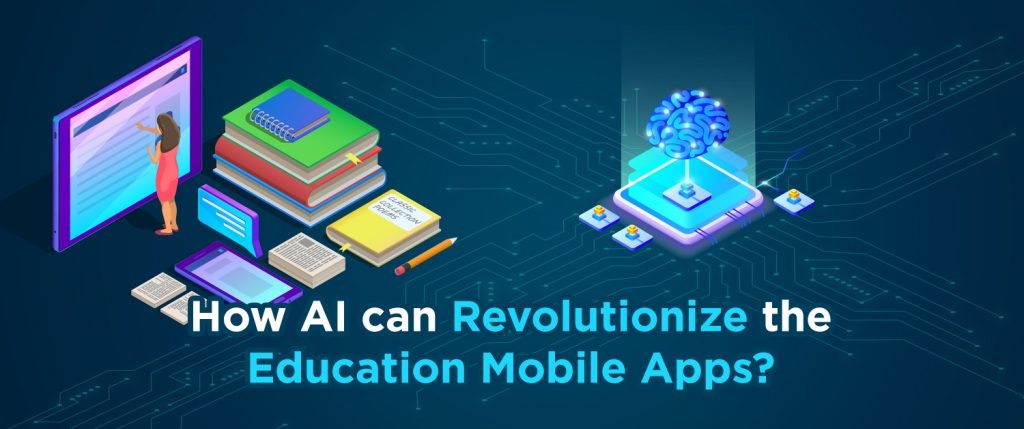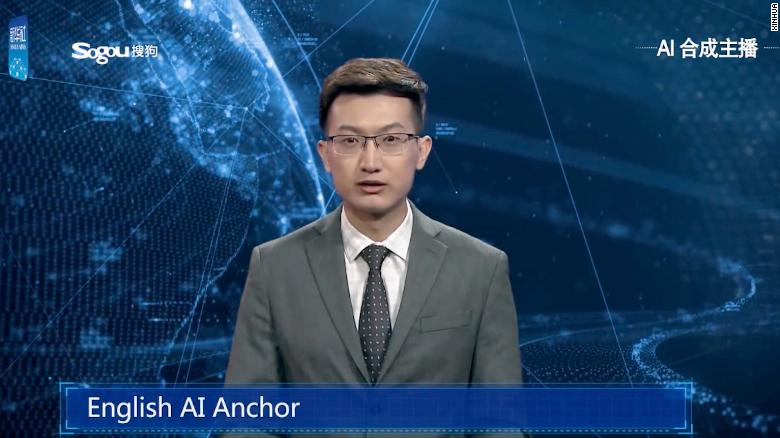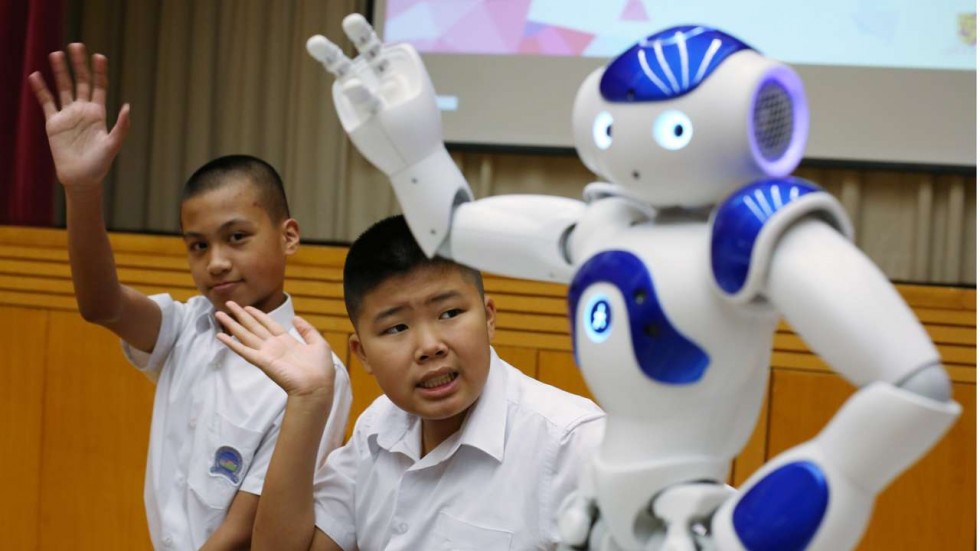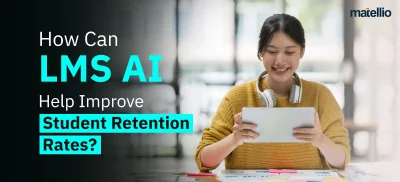
Mankind’s insistence to continually create, invent, and innovate has always been the driving force behind its cultural, economic, technological and, up to some extent, biological growth. From wheels to electricity, from steam engines to electric cars, we have been on a perpetual quest of self-improvement. And with each invention that we make, we make our lives a little easier than before. Now we can’t even imagine standing in line at banks or waiting for our tables at restaurants. Thanks to smartphone technology and smartphone app development, we can do all of our laborious chores with just a few taps of our fingers. And this is just one example, from eCommerce portals to Fitness and Online Video Streaming apps, these technologies have made everything a lot easier for consumers.

And one such invention, whose seeds were sown back in 1950 when Alan Turing created the Turing’s machine test and which have now started to bear fruits in the form of innovations like the world’s first AI news anchor(developed by Xinhua and the Chinese search engine), is Artificial Intelligence. This particular technology is being worked upon for decades now and yet it is not in its final stages of evolution. But while perfection is still a long way from here, over the years, AI technology has significantly sophisticated. From the auto-correct feature in our smartphones to sites like Amazon and Google studying our online activities and learning from it, we are quickly getting surrounded by AI. And other than our day to day lives, AI has successfully seeped into sectors like manufacturing, healthcare, military, space expedition, and most importantly, education.
The education sector has developed a lot over the years. As things to learn increase, so do the ways to learn them. Now you can watch tutorial videos, read ebooks, take online mock tests, use smartphone apps to learn new languages. The bottom line is, the education sector is one of those ever-in-bloom sectors which will always be hot, simply because there are always new things to learn. But things are changing for this sector, and swiftly so. The traditional classroom environment is quickly dying, and a new dawn of mobile-learning is at the horizon. And today we will find out how AI technology will fan the flames of the education sector’s growth.
So let’s get started then!
1. Takeover Frivolous Tasks

The first benefit of having an AI fueled education sector will be for the teachers. Let’s face it, a teacher’s life is never easy. From conducting lectures all day to making study-plans and exam papers and then grading answer sheets, her work never ends. This affects her efficiency to teach since she doesn’t get enough time to educate her students the way they should be. But by using AI, a significant amount of workload can be lifted from her shoulders.
New AIs are surfacing which are capable of grading answer sheets without needing the slightest amount of help from a human being. AIs capable of grading multiple choice question papers are already in the market and are being used by many universities. But industry leaders believe that soon AIs capable of grading theory papers and essays will emerge as well. Other than helping the teachers with their work, AIs are also helping out in the administration wing of many colleges and schools as well. Many universities have already fused various mundane and repetitive administrative tasks with AIs, like the admission process and looking over the paperwork, and have made the entire institution a lot more efficient by preventing the wastage of manpower of such minimal tasks.
2. Data Gathering and Analytics and Predictions
Data gathering is one of the most crucial aspects of Artificial Intelligence technology. The way an intelligent system works is:
Gather Data->Learn from it->Implement it
So for an AI to work properly, for it to be intelligent, it needs to be able to accumulate data from its surroundings, study it and then, make human-brain like decisions by drawing deductions out of the set of data. So basically, for a system to be intelligent, it must learn. And for it to learn, it must gather data. This particular aspect is essential for the education sector.
By using AI, colleges, schools, and universities can collect data about their students’ academic growth- Their test scores, areas they excel in, subjects they excel or have trouble in, etc. And then using this data, an AI can generate a student-wise analytic report which then can be used to study their personal growth. Furthermore, an AI can also find patterns in a pool of students. Say if an entire class is having trouble in Mathematics, or more precisely in Algebra, then AI will be able to point out that something is not right with either the curriculum or the topic is not being taught in the class properly. In that case, the teacher can be told to do better in her classes, and if need be, she can be replaced as well. So in a way, AI can help you evaluate your students and teachers at the same time.
Now one of the most wonderful traits about AI is that it is capable of predicting things. And the better the data it has, the more on-point its predictions will be. So using its analytics data, an AI can tell the most optimal career options for any student. The gathering of data for this prediction will have to more than merely academic of course, and that is where the next point in the article comes in.
Also Read- Artificial Intelligence in Education: Benefits, Application and Development
3. Personalized Help

On the other hand, the efficiency of any educational process is completed when it is adjusted per the demand of the certain learner. The traditional LMS also does offer a few adjustments while choosing the courses for training. But with AI-powered teaching assistants, the entire process becomes more personalized and flexible. With AI, customized training sessions can be planned after gaining insight into the learners’ performance, qualifications, and achievements.
Just like your home-assistants- Alexa, Google Assistant, etc.- AI technology proposes to educate every child with a personal companion. What they will do is teach a student, outside his classroom, at a pace which works with him and in a way which will generate a better learning quotient. In this way, a student can learn in a manner which has been designed specifically for him, keeping his strong and weak suites in mind. And personal tuitions are only the tip of the iceberg. These AI can help them with their homework, generate a daily revision plan in a way which will be best for that particular student only and gather other data as well- His extra-curricular activities, his hobbies etc. What all this will lead to is AI being able to make better suggestions for optimal careers based on a student’s academic and extra-curricular records. When a child learns things at a pace which he can work with and in a way which is best for him, he is sure to undergo great academic enhancements.
Some also believe that AI will soon become a child’s life-long companion, developed for him at a very young age and helping him with his studies from the first step.
4. Virtual Helpers
Another problem with the classroom culture is that a teacher is available to a student for only a couple of minutes. And during that time, on top of teaching the kids, she has to take attendance, deal with troublemakers and worry about all the tasks that she has to do still. So this doesn’t leave a lot of scope for the exchange of ideas between a teacher and a student and not enough time for a student to clarify his doubts.
So all that student can do is try to catch that teacher in the corridor and rush through his query or make an appointment for later via email, which she may or may not read. Thus, because of a teacher’s hectic schedule, a student suffers from gaps in his knowledge.
To solve this problem AI chatbots are quickly making their way into the mainstream market. One of the most popular AI chatbots is Georgia Tech’s AI teaching assistant named Jill Watson. Developed by professor Ashok Goel and his team of grad students, Watson is capable of responding to a large number of student queries on Georgia Tech’s online forum. Jill was engineered using IBM Watson infrastructure which is also famous for its victory over two Jeopardy champions. Now this feat in itself was astounding enough, but its awe-factor doubles when you take into regard the fact that Watson mimics a human so perfectly that students who were conversating with it on the forum, had no idea that Watson was just a chatbot!
By bringing this level of sophistication in their AI, Goel and his team have set an industry benchmark which is bound to be broken soon as everyone dashes in that direction as well.
5. AI as Exam Proctors
As we said it before as well, the entire education sector is becoming mobile. Students are no longer required to remain cemented at their desks, listening to their teachers talk on and on. Now they can learn whatever they want, whenever they want, all thanks to countless distance learning programmes in the market. But the problem with distance learning is that it requires examinations to be conducted on distant locations which are always tough to govern. The institution can never be sure that the students taking the exams didn’t cheat their way through. To provide a remedy for this problem, these program runners are now looking into creating AI proctors for these examination sites. And by using AIs as proctors, these institutions can rest easy by knowing that the exam takers will have to behave and the cheaters will be caught.
Also Read: A Complete Guide on eLearning Software Development
Before We Go

These are only some of how AIs and cloud computing in education system will revolutionize the education sector. At the core of this industry, is the belief that there is always something new to be learned. Doesn’t matter if it’s mathematics or biology or physics, the education sector survives and thrives on our need to learn and know more. And it is our duty that we make this learning process as streamlined and efficient as possible. AIs and cloud computing can help us in articulating the knowledge to our children in the best way possible, in the manner which suits their IQ and grasping power. We are now creating better classrooms; we are making the admin wing of colleges and schools more efficient, we are monitoring the growth of our students closely to make sure that they learn all they can. And all of it is, and some of it will be in coming years, possibly because of AI and cloud computing in the education system, which will make sure that no child will be left behind. A proof of this notion is the new AI technology which is helping children who have ASD in learning proper social behavior.




